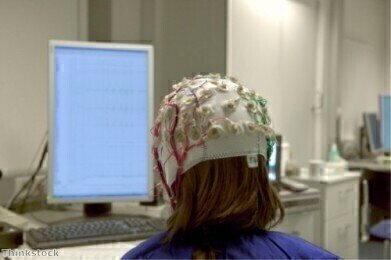-
 Link between diet and epilepsy established
Link between diet and epilepsy established
Bioanalytical
Link between diet and epilepsy established
Jan 16 2014
Experts in Canada and Switzerland have shed light on why it is possible to control epilepsy through a specially formulated diet, which may help to broaden understanding of the condition.
The study, conducted by scientists at McGill University and the University of Zurich, shows a direct link between metabolism in brain cells and their ability to signal information, specifically that metabolism controls the processes that inhibit brain activity, such as that involved in convulsions.
The key discovery is the link between how brain cells make energy and how the same cells signal information; something that neuroscientists previously assumed was distinct and separate.
Derek Bowie, Canada Research Chair in Receptor Pharmacology at McGill and corresponding author of the study, explained that inhibition in the brain is "commonly targeted" in clinical practice.
"For example, drugs that alleviate anxiety, induce anesthesia, or even control epilepsy work by strengthening brain inhibition. These pharmacological approaches can have their drawbacks, since patients often complain of unpleasant side-effects," he noted.
The team's experiments uncovered an unexpected link between how the mitochondria of brain cells make energy and how the same cells signal information by coupling the two independent functions by using small chemical messengers known as reactive oxygen species (ROS).
These are normally associated with signaling cell death, and although they have been known to have roles in diseases such as Alzheimer's and Parkinson's, this is the first time they have been shown to play important roles in the healthy brain.
Although the notion that the diet can control seizures was noticed as far back as Ancient Greece, and the ketogenic diet was widely used to treat epilepsy patients in the early 20th century, the introduction of anticonvulsant drugs in the 1950s led to the dietary approach falling out of favour with medical professionals.
However, as anticonvulsant drugs do not work for 20 to 30 per cent of patients, there has been a resurgence in the ketogenic diet, which the new study will complement.
Professor Bowie explained: "Since our study shows that brain cells have their own means to strengthen inhibition, our work points to potentially new ways in which to control a number of important neurological conditions including epilepsy."
Digital Edition
Chromatography Today - Buyers' Guide 2022
October 2023
In This Edition Modern & Practical Applications - Accelerating ADC Development with Mass Spectrometry - Implementing High-Resolution Ion Mobility into Peptide Mapping Workflows Chromatogr...
View all digital editions
Events
Jan 20 2025 Amsterdam, Netherlands
Feb 03 2025 Dubai, UAE
Feb 05 2025 Guangzhou, China
Mar 01 2025 Boston, MA, USA
Mar 04 2025 Berlin, Germany











